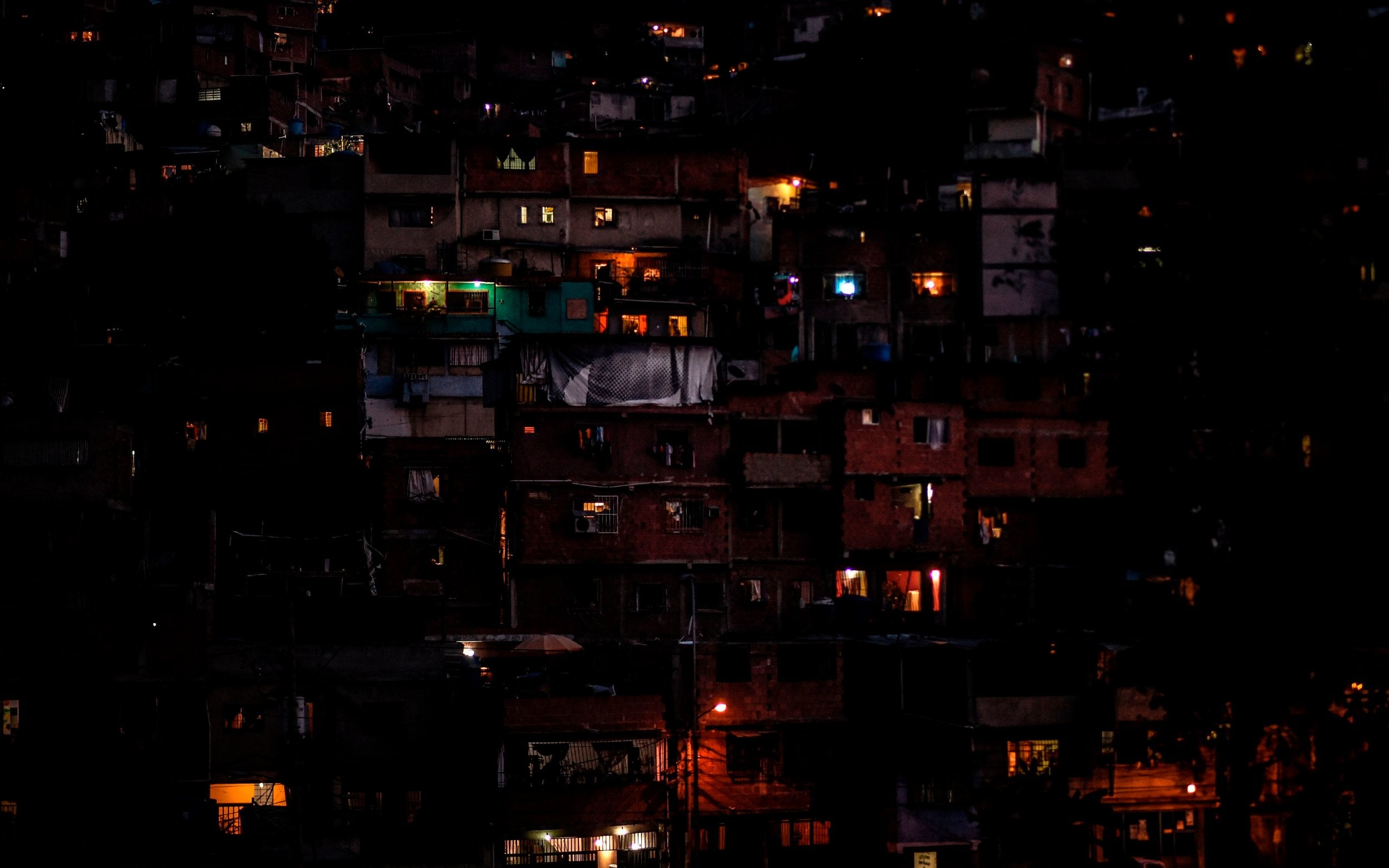Venezuela plunged into darkness for fourth consecutive day as country teeters on brink
Cause of blackout has been source of speculation

Your support helps us to tell the story
From reproductive rights to climate change to Big Tech, The Independent is on the ground when the story is developing. Whether it's investigating the financials of Elon Musk's pro-Trump PAC or producing our latest documentary, 'The A Word', which shines a light on the American women fighting for reproductive rights, we know how important it is to parse out the facts from the messaging.
At such a critical moment in US history, we need reporters on the ground. Your donation allows us to keep sending journalists to speak to both sides of the story.
The Independent is trusted by Americans across the entire political spectrum. And unlike many other quality news outlets, we choose not to lock Americans out of our reporting and analysis with paywalls. We believe quality journalism should be available to everyone, paid for by those who can afford it.
Your support makes all the difference.Sporadic looting and spontaneous protests. Desperate patients begging doctors to be kept alive. Residents bracing for wider attacks on markets and restaurants after the sun goes down.
Sunday was the fourth day since Venezuela’s power system went down, plunging most of the country, including Caracas, the capital, into sporadic darkness and dampening hopes of imminent resolution to a devastating blackout that has brought the country to the verge of social implosion.
“We’re going to arrive at a moment when we’re going to eat each other,” said Zuly González, 40, a resident of Caracas’ Chacao neighbourhood.
The blackout is the latest calamity to befall a country in seemingly perpetual crisis. Venezuela has been devastated for years by hyperinflation and a failing economy that has led millions to flee. But the country has been further torn since January, when opposition leaders refused to acknowledge as legitimate the re-election of President Nicolas Maduro.
On Thursday, the San Geronimo B substation in the centre of the country, which supplies electricity to 4 out of 5 Venezuelans from the massive Guri hydropower plant, went down.
No date has been set to restart the plant, and most workers were told to stay home Monday, said two of the substation’s workers and a manager at the national power monopoly, Corpoelec. Their names have been withheld to protect them from government reprisals.
The nearby San Geronimo A backup substation, which transmits much weaker current from a smaller hydropower plant, operated intermittently Sunday. Supplies from that plant and few unreliable thermoelectric plants allowed the government to send sporadic power to Caracas throughout the day.
The government said the blackout was caused by an unspecified fault at Guri, which provides 80 percent of the country’s electricity. Mr Maduro and his ministers have insisted the blackout was the result of sabotage and cyberattacks organised by the United States and the opposition, without providing any evidence.
Energy experts, Venezuelan power sector contractors and current and former Corpoelec employees have dismissed accusations of sabotage, saying the blackout was the result of years of underinvestment, corruption and brain drain.
The San Geronimo B substation connects many of Venezuela’s largest cities to the Guri hydropower plant via one of the longest high-voltage lines in the world.
When visited Sunday, the substation’s usual buzz of high-voltage cross currents was replaced by silence. A cow roamed amid the transformers. Several National Guard soldiers and a unit of police commandos were at the substation, but no employees were there.
The substation is vital “to supply the country in a stable way,” said Luis Aguilar, a Venezuelan power industry expert based in Chicago. Its paralysis means power is unlikely to be restored nationally until Tuesday at the earliest, he said.
The government declared Monday a holiday for schools and public workers.
What caused the blackout has been a source of speculation. A Corpoelec union leader, Ali Briceño, told reporters Friday that a brush fire under a power trunk line destabilised the grid and caused Guri’s turbines to shut down. The government has struggled to restart the turbines since, he said.
Other experts, including Mr Aguilar, said the magnitude of the blackout indicated the problem was caused by a major failure inside Guri’s turbines. A Corpoelec supervisor involved in dispatching Guri’s power said he was told by the plant’s managers Thursday that the plant’s equipment had been damaged.
After analysing power levels across the country, Mr Aguilar, who consults reinsurance companies on Venezuela’s power sector, said the government had tried to restart Guri four times since the start of the blackout on Thursday.
The latest attempt led to the explosion of a secondary substation near Guri on Saturday.
“Every time they attempt to restart, they fail, and the disruption breaks something else in the system, destabilizing the grid yet further,” Mr Aguilar said. “Obviously, they are hiding something from us,” he said of the government.
Restarting the turbines requires skilled operators who can synchronise the speed of rotation on as many as nine of Guri’s operational turbines. Experts said the most experienced operators have since left the company because of meagre wages and an atmosphere of paranoia fed by Mr Maduro’s ever-present secret police.
The New York Times
Join our commenting forum
Join thought-provoking conversations, follow other Independent readers and see their replies
Comments